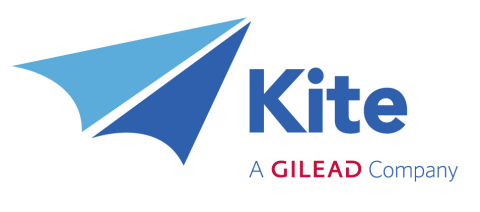Gilead highlights Yescarta survival data in ASCO update

Gilead’s Kite subsidiary has reported new data from the main trial for its CAR-T Yescarta, hoping to encourage greater use of the slow-growing therapy. Updated results from the ZUMA-1 trial that underpinned the 2017 approval of Yescarta (axicabtagene ciloleucel) in relapsed or refractory large B-cell lymphoma show that patients are still seeing a clinical benefit two years later. More than half of the patients treated with the CD19-targeted CAR-T were still alive after 24 months, and it seems older patients did slightly better than those who were younger. All told, the overall survival rate was 54% among the over-65s, slightly better than the 49% seen in younger patients. Moreover, the older patients saw a 92% overall response rate after a median of 27.1 months’ follow-up, compared with 81% in the younger group, and complete response (CR) rates were 75% and 53% respectively. There was also good news on the safety front with new results presented showing that patients who had experienced a serious CAR-T side effect known as cytokine release syndrome (CRS) were able to be managed effectively with steroids, with no deaths due to adverse events. The performance in the over-65s is important because, said co-lead investigator Sattva Neelapu of MD Anderson Cancer Center because “patients with refractory large B-cell lymphoma who have exhausted treatment options and are still facing progressive disease are often older.” The new data could help Gilead consolidate its position in the market against Novartis’ CD19 CAR-T Kymriah (tisagenlecleucel), which was the first CAR-T to market but has fallen behind sales-wise thanks in part to manufacturing issues, despite what appears to be similar efficacy. Yescarta made $264 million in sales last year, well ahead of the $78 million posted by Kymriah, although Novartis’ drug seems to be gathering a bit of momentum latterly. First-quarter sales were $96 million and $45 million, respectively, and neither CAR-T is reaching the blockbuster sales once predicted. Building momentum for the CAR-T franchise is important if Gilead is to recoup its $12 billion investment in Kite, and survive its looming patent cliff as HIV blockbuster Truvada faces the prospect of generic competition in the US next year. Its patent has already expired in Europe. That is coming on the back of the collapse of its once-lucrative hepatitis C franchise, and a recent setback in nonalcoholic steatohepatitis (NASH), another area if focus for the company as it tries to diversify. Looking beyond Yescarta, Gilead and Kite also presented end-of-phase 1 data at ASCO on follow-up anti-CD19 candidate KTE-X19 in adults with relapsed or refractory acute lymphoblastic leukaemia (ALL), an indication that Yescarta lacks but is already on Kymriah’s label. Of 41 patients who were evaluable for efficacy after median follow-up of 16 months, 68% achieved either a CR or a CR with incomplete haematological recovery (CRi) while all responders had undetectable minimal residual disease (MRD). KTE-X19 employs the same T cell construct as Yescarta but as a slightly modified manufacturing process to boost its activity in diseases where there is a large burden of circulating tumour cells such as ALL. Gilead has previously said it intends to file for approval of KTE-X19 before the end of the year in mantle cell lymphoma, with a filing in ALL following after if all goes according to plan. Speaking to pharmaphorum at ASCO, Remus Vezan, Kite’s executive director of clinical development, said he was “confident” about the efficacy and safety of KTE-X19. “We are in a good position and we are confident that this is the right treatment for these patients,” he said.











